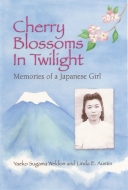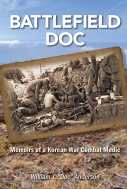“Never forget. If we forget, it’s as though it never happened.” Unfortunately the words fit more than the Holocaust, the genocide of Jews in WWII. Humans continue to commit genocide without apology. Recently, I attended a screening of the new documentary Pretty Village by Kemal Pervanic, a survivor of the Omarska death camp in the Bosnian War of the 1990s. What a story he told at an event sponsored by the Bosnia Memory Project.
St. Louis has the largest Bosnian population outside of Bosnia, thanks to the influx of refugees from the Bosnian War where many thousands of Bosnians were abused, tortured, and massacred. Mr. Pervanic, who has gone back to his home village to visit what is left, says his Serbian former neighbors, friends, and school teachers have their reasons for participating in the atrocities and are tight-lipped and unrepentant. Some say, “We were the good guys, at least we didn’t kill you.” Only 50 of 800 villagers were left.
Sadly, history does repeat itself as too many people only look to their own future and could care less about others. There are many ways to justify the evil we do and many ways to twist a story. Still, the victims know the hope for the future lies in remembering. Someday, caring and peace-loving people may point and say, “Look what happened before when we turned away and did nothing.” Turn away and lose a bit of your own humanity. Interestingly, there is little physical difference between the Bosnian Muslims, Orthodox Serbs, and Catholic Croats; the Bosnians tended to be rather secular in their beliefs; and all three groups co-mingled well before the trouble started. What happened?
The stories behind the Bosnian War are complex, but can genocide ever be justified? Some of the Bosnians who fled during the war have returned to live among their former guards and torturers. Mr. Pervanic, who escaped to the UK and still lives there, says another war is in the wings because it was never over. However, he has started a program called “Most Mira,” or “Bridge of Peace,” a British and Bosnian nonprofit working with children in the Prijedor area of Bosnia “to encourage understanding and tolerance between young Bosnians of all ethnic backgrounds.” He also works to encourage fellow survivors of the war to speak up and tell their stories, to “take ownership of their pasts, because without history, you don’t exist. You were a part of the genocide story and need to keep the memory alive.” The Bosnian Memory Project, based in St. Louis, also encourages the telling of stories for the sake of history, to help in healing and reconciliation, and to share the culture and experiences of Bosnians.
A few published first-hand stories of the Bosnian War exist:
The Bosnia List by Kenan Trebincevic and Susan Shapiro
Logavina Street by Barbara Demick






Extermination is one of the most hideous things a powerful group of humans can do to a less powerful group. Its happened throughout history; even today. It gets even more hideous when religion is involved. It never ends.